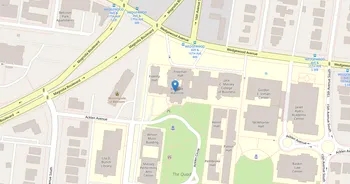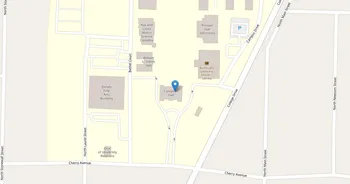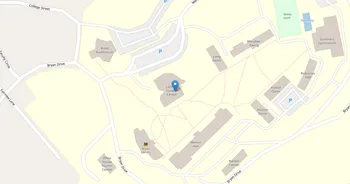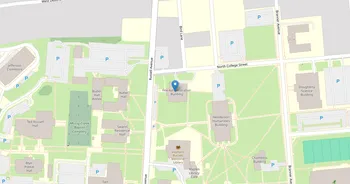Baptist Health Sciences University : Overview, Courses, Scholarships & Rankings
About Baptist Health Sciences University
Set in the Memphis care corridors, with close ties to a major regional health system, Baptist Health Sciences University is known for its focus on health professions and for pairing solid science with hands-on learning. Students move between simulation labs, the health sciences library, and classrooms connected to clinical practice. And support is steady, with advising, tutoring, counseling, and career guidance.
Campus culture feels service minded and welcoming, shaped by Baptist roots and a patient first outlook. Student groups and volunteer work link you to hospitals and community clinics, while clinical placements and professional mentors keep career prep close. After class, Memphis offers music, food, museums, and riverfront parks. Pinning or white coat moments mark the steps into patient care.
Key Institutional Details
Contact & Profile
Academic & Institutional
Academic Programs & Fields of Study
Baptist Health Sciences University offers 12 degree programs across 2 major academic fields, graduating approximately 169 students annually. The most popular fields by graduate volume are Health (11 programs, 159 graduates) and Biological Sciences (1 programs, 10 graduates). Explore program details, award levels, and graduate demographics below.
Health (11 programs, 159 graduates)
Healthcare Professions, Medical Sciences and Clinical Practice
| Program Name | Graduates | Gender Distribution | Award Levels | CIP Code |
|---|---|---|---|---|
| Registered Nursing | 90 |
|
Bachelor's
|
51.3801 |
| Health Administration and Management | 12 |
|
Bachelor's
|
51.0701 |
| Radiologic Technology | 11 |
|
Bachelor's
|
51.0911 |
| Surgical Technology | 9 |
|
Associate's
|
51.0909 |
| Electroneurodiagnostic Technology | 8 |
|
Associate's
Bachelor's
|
51.0903 |
| Nursing Practice | 8 |
|
Doctorate (P)
|
51.3818 |
| Diagnostic Medical Sonography | 7 |
|
Bachelor's
|
51.0910 |
| Clinical Laboratory Science and Medical Technology | 5 |
|
Bachelor's
|
51.1005 |
| Nuclear Medical Technology | 4 |
|
Bachelor's
|
51.0905 |
| Medical Radiologic Technology | 4 |
|
Bachelor's
|
51.0907 |
| Health and Medical Preparatory Programs | 1 |
|
Associate's
|
51.1199 |
Biological Sciences (1 programs, 10 graduates)
Life Sciences, Biotechnology and Biomedical Research
| Program Name | Graduates | Gender Distribution | Award Levels | CIP Code |
|---|---|---|---|---|
| Biomedical Sciences | 10 |
|
Bachelor's
|
26.0102 |
Admission Requirements & Test Scores
Comprehensive overview of admission criteria, standardized test score ranges, and application requirements for prospective students at Baptist Health Sciences University.
Application Requirements
Data based on IPEDS for 2022-2023 academic year. Test score ranges represent the middle 50% of admitted students (25th-75th percentile). Requirements may vary by program.
Tuition, Fees & Estimated Costs
Overview of tuition rates, housing, and other annual education expenses for undergraduate and graduate students
Financial Aid & Student Support
Summary of scholarships, grants, student loans, and financial aid statistics for undergraduate students
Student Success Metrics
Graduation rates and post-graduation earnings to help assess student outcomes and long-term value of education.
Loan Burden & Repayment Outcomes
Breakdown of loan repayment rates and student debt levels by income and dependency status.
Frequently Asked Questions
Find answers to the most common questions about Baptist Health Sciences University
How much does it cost to attend Baptist Health Sciences University?
The annual tuition at Baptist Health Sciences University is $13,846 for in-state students. When including room and board, books, and other expenses, the total estimated cost is approximately $24,791 for in-state students. Additional costs include room and board $3,980 (on) / $7,573 (off) and books and supplies $1,022.
Data based on IPEDS program completions for 2022-2023 academic year. Tuition and cost estimates are approximate and may not include all fees, personal expenses, or transportation costs.
What academic programs and degree levels does Baptist Health Sciences University offer?
Baptist Health Sciences University offers 12 academic programs across 2 major fields of study, with available degree levels: Associate's, Bachelor's, Doctorate (Professional).
Most popular program areas include:
- Healthcare Professions, Medical Sciences and Clinical Practice (11 programs)
- Life Sciences, Biotechnology and Biomedical Research (1 programs)
Data based on IPEDS program completions for 2023-2024 academic year. Numbers reflect programs where students graduated, not all offered programs.
What is the acceptance rate for Baptist Health Sciences University?
Baptist Health Sciences University has an 67.8% acceptance rate and a 41.7% yield rate, making it selective.
Admission statistics breakdown:
- Total applicants: 152
- Students admitted: 103
- Students enrolled: 43
Data based on IPEDS for 2022-2023 academic year. Admission statistics may vary by program and application cycle.
What financial aid and scholarships are available at Baptist Health Sciences University?
Baptist Health Sciences University provides financial aid to 5% of first-time, full-time students, with average grants of $6,017 and average loans of $3,018.
Average financial aid amounts by type:
- Pell grants: $2,707
- State/Local grants: $3,435
- Institutional grants: $3,275
- Federal loans: $3,018
The university supports 34 students with grants and 14 students with loans annually.
Data based on IPEDS for 2022-2023 academic year. Financial aid amounts and percentages may vary by program, enrollment status, and individual circumstances.
What is the average salary for Baptist Health Sciences University graduates?
Baptist Health Sciences University graduates earn a median salary of $59,224 after 6 years and $72,529 after 10 years.
The salary range 10 years after graduation spans from $48,076 (25th percentile) to $97,481 (75th percentile).
Data based on IPEDS for 2022-2023 academic year. Salary data reflects graduates who received federal financial aid (approximately 60% of all graduates). Actual earnings may vary significantly based on program, location, and individual circumstances.
Related Universities




Found something useful? Help others discover it too! Share with friends, on social media, or save for later - every share helps someone find the information they need.